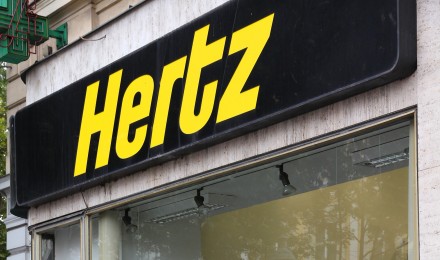Higher One Inc. has agreed to pay $11 million to college students in response to allegations of overcharging fees and other unfair practices, says the Federal Deposit Insurance Corporation (FDIC).
Higher One, a financial service based in New Haven, Conn., partners with colleges and universities across the nation in order to market bank cards and checking accounts to students. As a financial aid distributor, Higher One deposits financial aid money into student checking accounts, and students access funds via a OneAccount debit card. Bancorp Bank issues the debit cards.
According to the FDIC, Higher One violated federal law by charging students multiple non-sufficient fund fees (NSF) for a single transaction, as well as allowing accounts to stay in overdrawn status for lengthy periods. This resulted in continuous overdraft fees. The FDIC also charged the company with collecting non-sufficient fund fees from subsequent deposits purposed to pay tuition and other school-related fees.
While Higher One never admitted or rejected these charges, the company has agreed to pay restitution to some 60,000 college students affected by these practices. Restitution is available to students who incurred fees beginning July 16, 2008. Higher One will either credit account holder accounts, or issue a check in the event of a closed account. According to the company, refunds began in December 2011.
In addition to the $11 million paid to college students, both Higher One and the Bancorp Bank face fees imposed by the FDIC. Higher One is paying $110,000 in civil fines, whereas the Bancorp Bank is paying a $172,000 fine. As the issuer of the debit cards, it was the responsibility of the Bancorp Bank to confirm that Higher One complied with the law. Bancorp acknowledges its mistakes and has since severed the partnership with Higher One.
The FDIC also ordered Higher One to modify how it imposes non-sufficient fund fees and to refrain from any deceptive marketing tactics.
While these allegations and fees are a major blow to the financial company, this isn’t the first time that Higher One has landed in hot water with consumers. Students who use the OneAccount debit card sometimes pay a fee with each swipe of the card — which can reduce their financial aid money. This has triggered much controversy on college campuses, as students have protested for the elimination of the fee. There has even been a student lawsuit filed against Higher One.
Higher One currently has agreements with 520 campuses nationwide. Partnerships include Liberty University, Miami Dade College and John Hopkins University. Some advocates partially blame colleges and universities for the fiasco. They feel that higher learning institutions pushed this banking option on students in order to receive a commission from Higher One. When colleges and universities pocket money from the deal, there’s less consideration for what’s in the best interest of students. New contracts with higher learning institutions no longer include commissions, says Higher One.
Higher One Inc. has agreed to pay $11 million to college students in response to allegations of overcharging fees and other unfair practices, says the Federal Deposit Insurance Corporation (FDIC).
Higher One, a financial service based in New Haven, Conn., partners with colleges and universities across the nation in order to market bank cards and checking accounts to students. As a financial aid distributor, Higher One deposits financial aid money into student checking accounts, and students access funds via a OneAccount debit card. Bancorp Bank issues the debit cards.
According to the FDIC, Higher One violated federal law by charging students multiple non-sufficient fund fees (NSF) for a single transaction, as well as allowing accounts to stay in overdrawn status for lengthy periods. This resulted in continuous overdraft fees. The FDIC also charged the company with collecting non-sufficient fund fees from subsequent deposits purposed to pay tuition and other school-related fees.
While Higher One never admitted or rejected these charges, the company has agreed to pay restitution to some 60,000 college students affected by these practices. Restitution is available to students who incurred fees beginning July 16, 2008. Higher One will either credit account holder accounts, or issue a check in the event of a closed account. According to the company, refunds began in December 2011.
In addition to the $11 million paid to college students, both Higher One and the Bancorp Bank face fees imposed by the FDIC. Higher One is paying $110,000 in civil fines, whereas the Bancorp Bank is paying a $172,000 fine. As the issuer of the debit cards, it was the responsibility of the Bancorp Bank to confirm that Higher One complied with the law. Bancorp acknowledges its mistakes and has since severed the partnership with Higher One.
The FDIC also ordered Higher One to modify how it imposes non-sufficient fund fees and to refrain from any deceptive marketing tactics.
While these allegations and fees are a major blow to the financial company, this isn’t the first time that Higher One has landed in hot water with consumers. Students who use the OneAccount debit card sometimes pay a fee with each swipe of the card — which can reduce their financial aid money. This has triggered much controversy on college campuses, as students have protested for the elimination of the fee. There has even been a student lawsuit filed against Higher One.
Higher One currently has agreements with 520 campuses nationwide. Partnerships include Liberty University, Miami Dade College and John Hopkins University. Some advocates partially blame colleges and universities for the fiasco. They feel that higher learning institutions pushed this banking option on students in order to receive a commission from Higher One. When colleges and universities pocket money from the deal, there’s less consideration for what’s in the best interest of students. New contracts with higher learning institutions no longer include commissions, says Higher One.






